The Department of Safety and Professional Services (DSPS) is statutorily responsible for ensuring the safe and competent practice of credentialed professionals in Wisconsin. In August 2023, DSPS administered more than 200 types of credentials for individuals who work in healthcare professions, business professions, and the trades.
DSPS is funded primarily by program revenue, including from the fees individuals pay when applying for initial credentials and renewing their credentials. In fiscal year (FY) 2022-23, DSPS spent $11.2 million on credentialing activities.
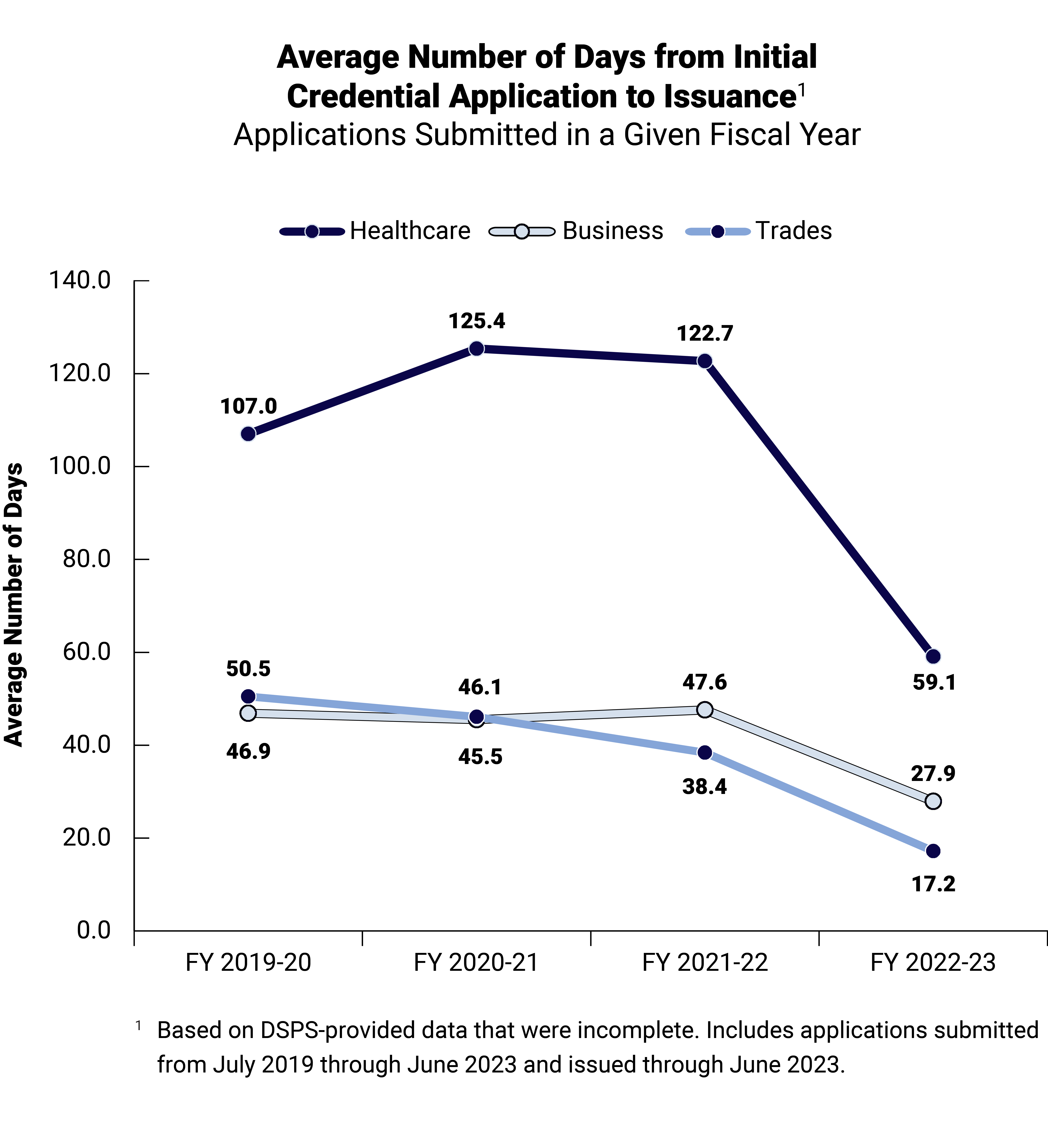
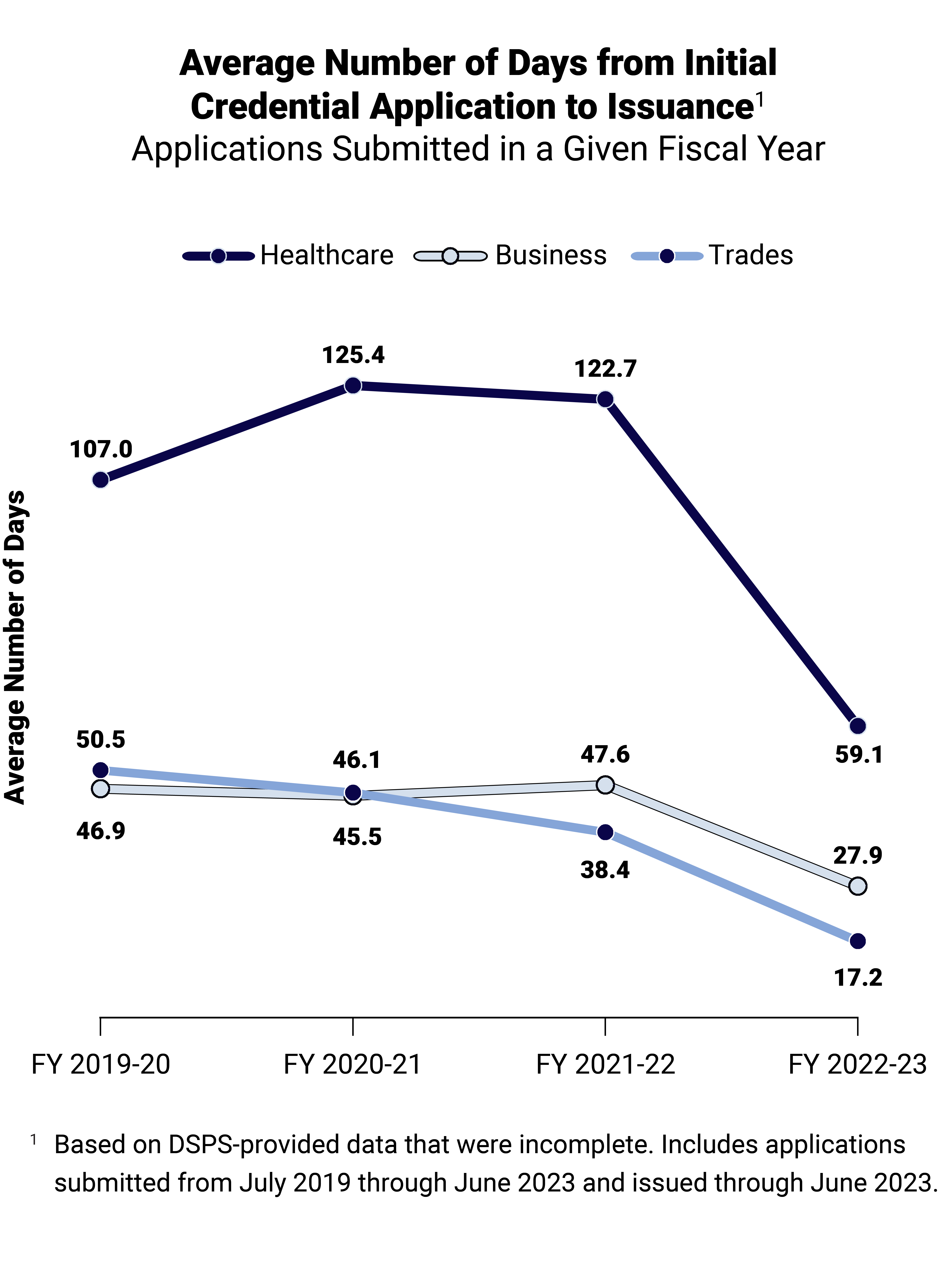
In FY 2022-23, DSPS took an average of 59.1 days to issue initial healthcare credentials, compared to more than 100 days in each of the prior three fiscal years. The decrease is explained, in part, because DSPS began in May 2022 to process such applications through LicensE, which is an online credentialing system that DSPS intends to use as a replacement for multiple legacy systems.
We found that DSPS did not have comprehensive written policies for administering credentials and required some individuals to pay the credential application fee twice. We recommend DSPS develop comprehensive written policies and policies that require it to refund application fees paid by individuals who used an incorrect application method.
Our file review of 100 applications for initial credentials determined the extent to which DSPS, applicants, or both were responsible for the amount of time it took to issue credentials. We selected a sample of applications for healthcare credentials that DSPS accepted in LicensE from May 2022 or later and that resulted in credentials issued through May 2023. We randomly selected applications from the one-fourth of credentials that took the longest amount of time to issue. On average, it took 189.6 days to issue the 100 credentials in our file review.
Our file review found that:
- 25.5 percent of the time to issue credentials was attributable to DSPS reviewing information applicants had submitted;
- 35.0 percent of the time was attributable to applicants needing to submit additional required information; and
- 39.5 percent of the time was attributable to DSPS and applicants simultaneously waiting for each other.
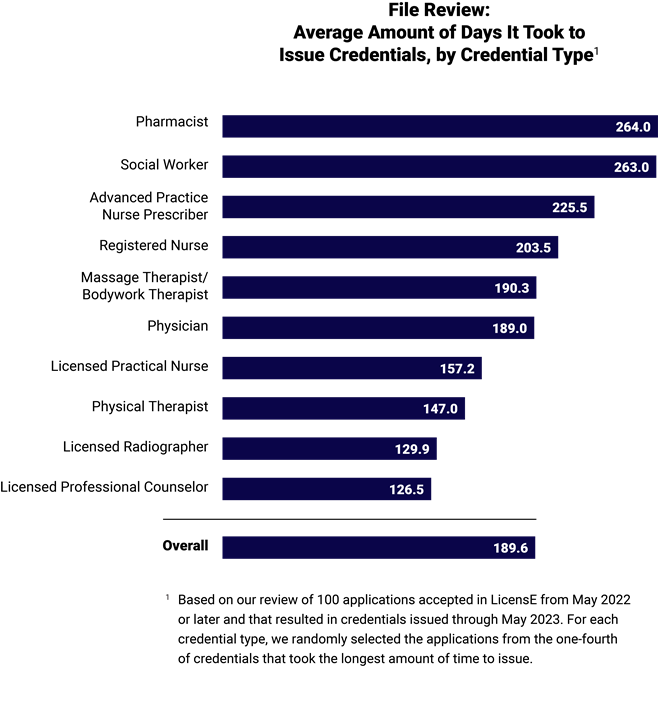
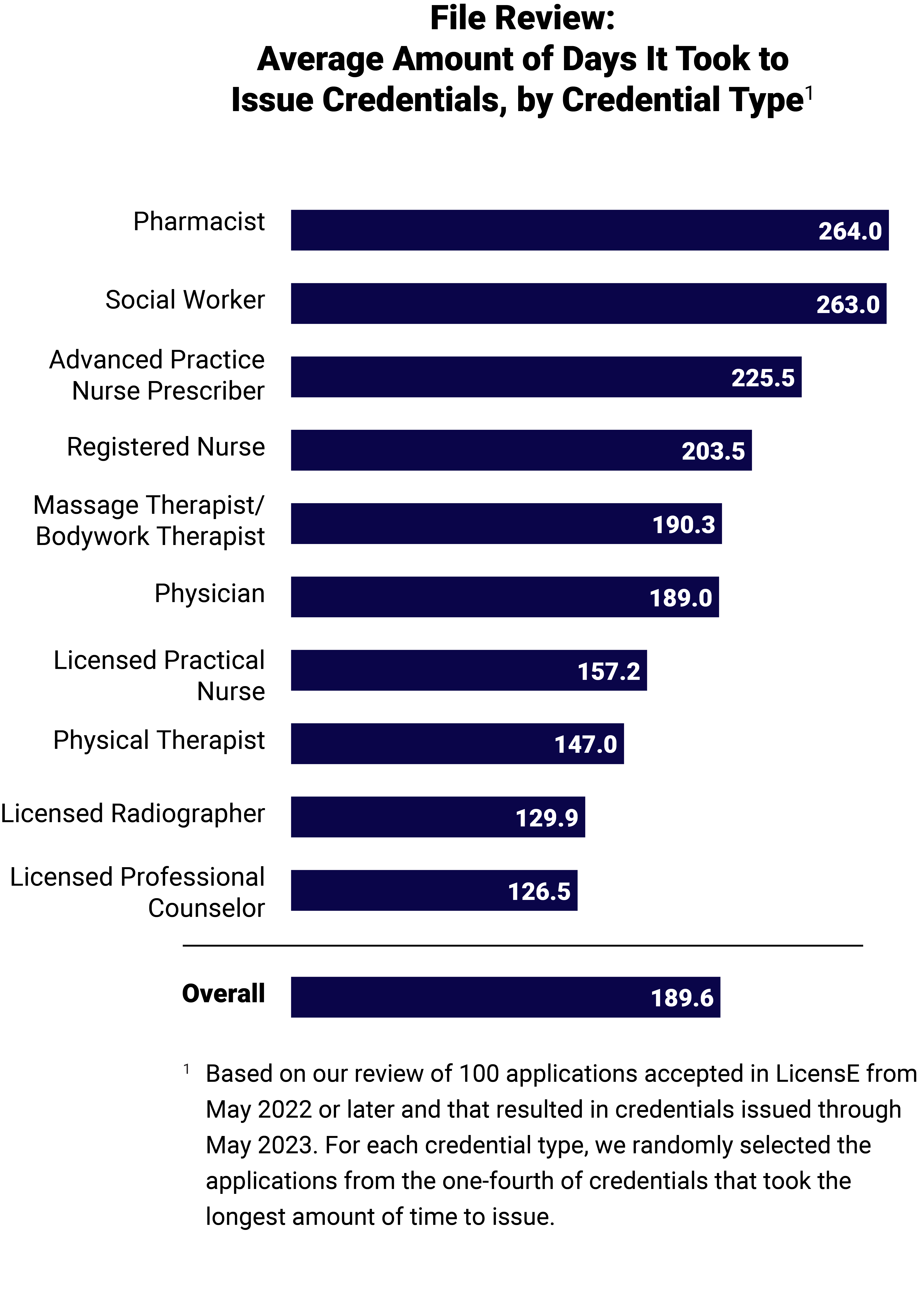
At the end of FY 2022-23, DSPS had $50.2 million in surplus program revenue it was not authorized to spend. In addition, the number of authorized full-time equivalent (FTE) positions for permanent credentialing staff decreased from 43.0 in January 2020 to 42.1 in January 2023. The number of authorized FTE staff positions for credentialing decreased from the 2013-15 biennium through the 2017-19 biennium but increased in the following three biennia.

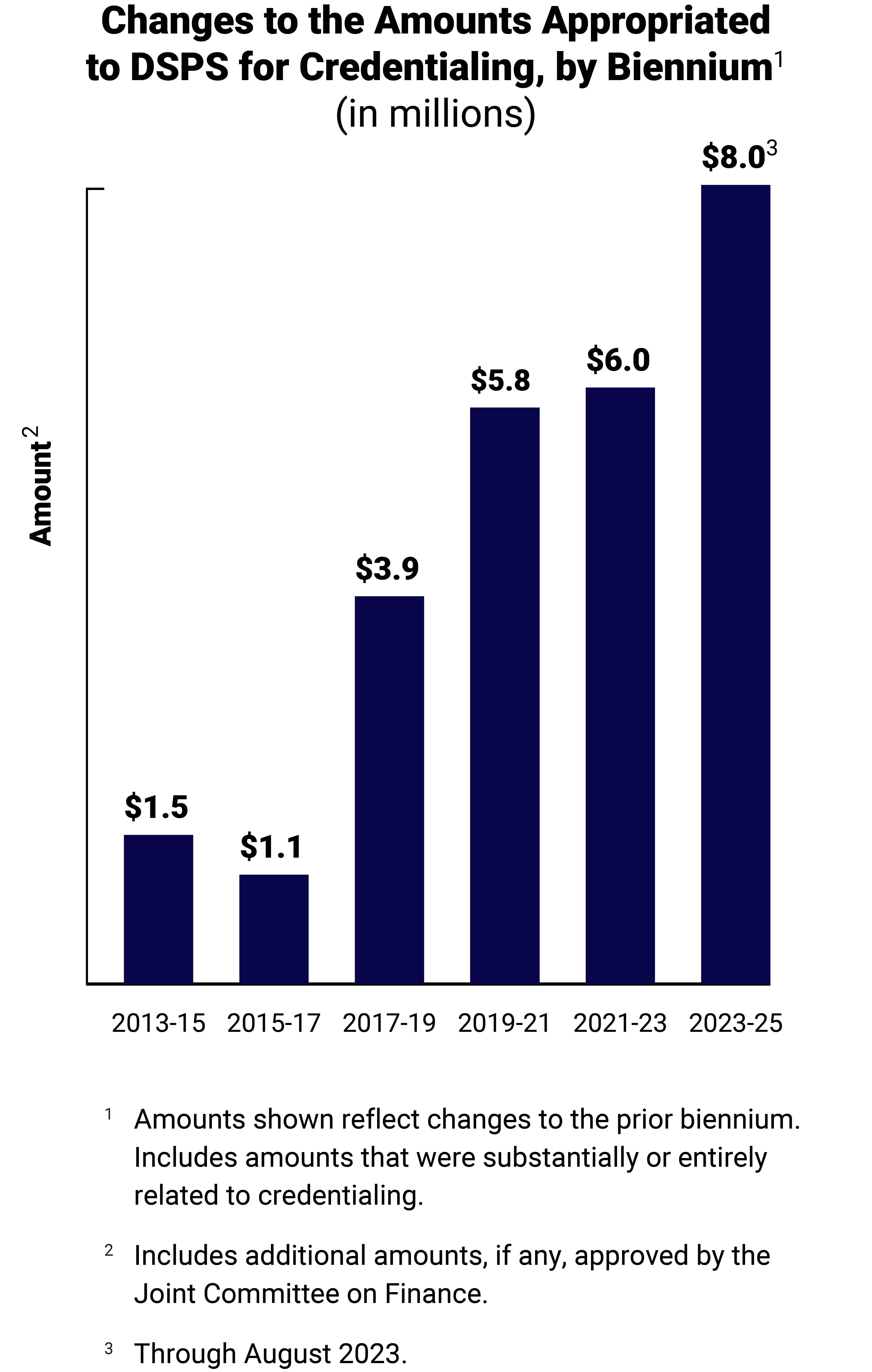
DSPS can improve how it administers credentials by regularly reporting on its website up-to-date information pertaining to its administration of credentials, regularly collecting and assessing information about the productivity of its credentialing staff and using this information to improve its operations, and using the productivity information it has collected and assessed as the basis for any future requests for additional staffing, information technology, or other resources it believes are needed for it to administer credentials efficiently and effectively.
Please see the complete list of our recommendations on our website.




